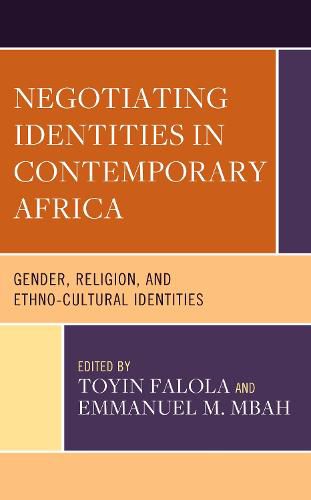Readings Newsletter
Become a Readings Member to make your shopping experience even easier.
Sign in or sign up for free!
You’re not far away from qualifying for FREE standard shipping within Australia
You’ve qualified for FREE standard shipping within Australia
The cart is loading…






Negotiating Identities in Contemporary Africa: Gender, Religion, and Ethno-cultural Identities explores the changing dynamics of identities in Africa, with a focus on gender, ethno-cultural, and religious identity. Toyin Falola and Emmanuel M. Mbah argue that because identity defines who we are as individuals or groups, studies on African identities must focus on understanding the changing dynamics in the socio-economic and political spheres in the continent. These chapters cover subjects such as women's career identity, gender roles and knowledge, childlessness, ethnocentrism and democracy, cultural identity through theater, Black identity in the diaspora, and diasporic consciousness. Using existing scholarship, the chapters in this edited volume challenge our understanding of what identity entails and provide new discussions on the hitherto politicized historiography of some identities in Africa.
$9.00 standard shipping within Australia
FREE standard shipping within Australia for orders over $100.00
Express & International shipping calculated at checkout
Negotiating Identities in Contemporary Africa: Gender, Religion, and Ethno-cultural Identities explores the changing dynamics of identities in Africa, with a focus on gender, ethno-cultural, and religious identity. Toyin Falola and Emmanuel M. Mbah argue that because identity defines who we are as individuals or groups, studies on African identities must focus on understanding the changing dynamics in the socio-economic and political spheres in the continent. These chapters cover subjects such as women's career identity, gender roles and knowledge, childlessness, ethnocentrism and democracy, cultural identity through theater, Black identity in the diaspora, and diasporic consciousness. Using existing scholarship, the chapters in this edited volume challenge our understanding of what identity entails and provide new discussions on the hitherto politicized historiography of some identities in Africa.